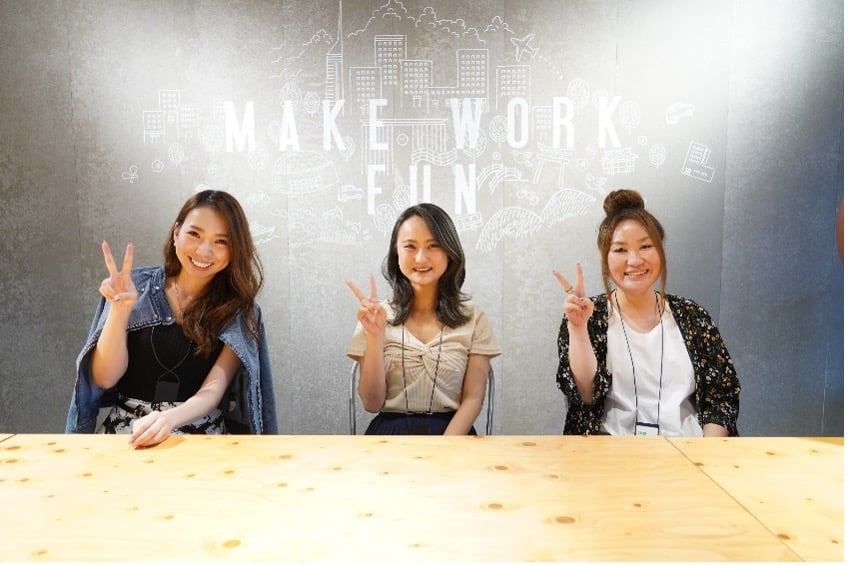Supporting Services and Changing Product Quality from Fukuoka - The Past and Future of 「Technology」 at LINE Fukuoka
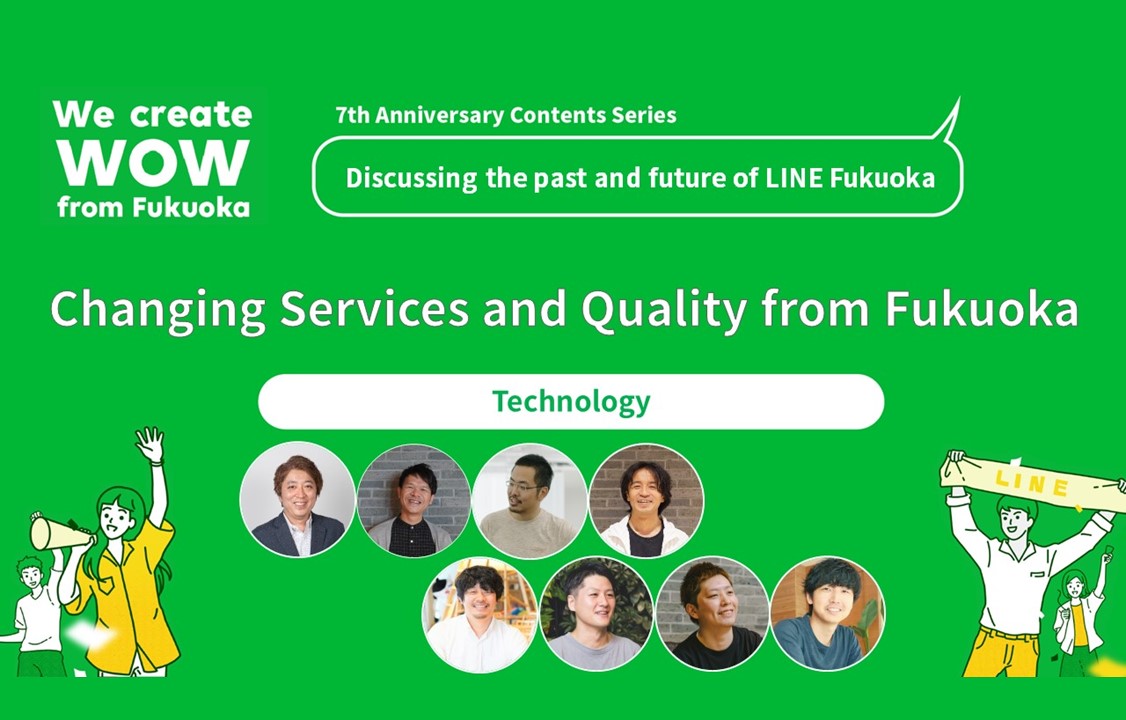
[Notice] Effective October 1, 2023, LINE Fukuoka has changed its company name to LY Communications. Articles published on or before September 30, 2023 were written with our former company name.
LINE Fukuoka celebrates its seventh anniversary on November 18. In that brief period, the company has rapidly expanded in both organizational scale and the functions that it is equipped to perform.
To celebrate our seventh anniversary, we will be re-introducing you to the functions that we currently serve. We also sat down with several department leaders to ask them how they've grown over the last seven years, as well as what challenges they plan to take on in the future in our seventh anniversary project.
In this issue we asked them about the evolution and future of our "technology" departments, such as service development and quality assurance (QA).
This time we interviewed:
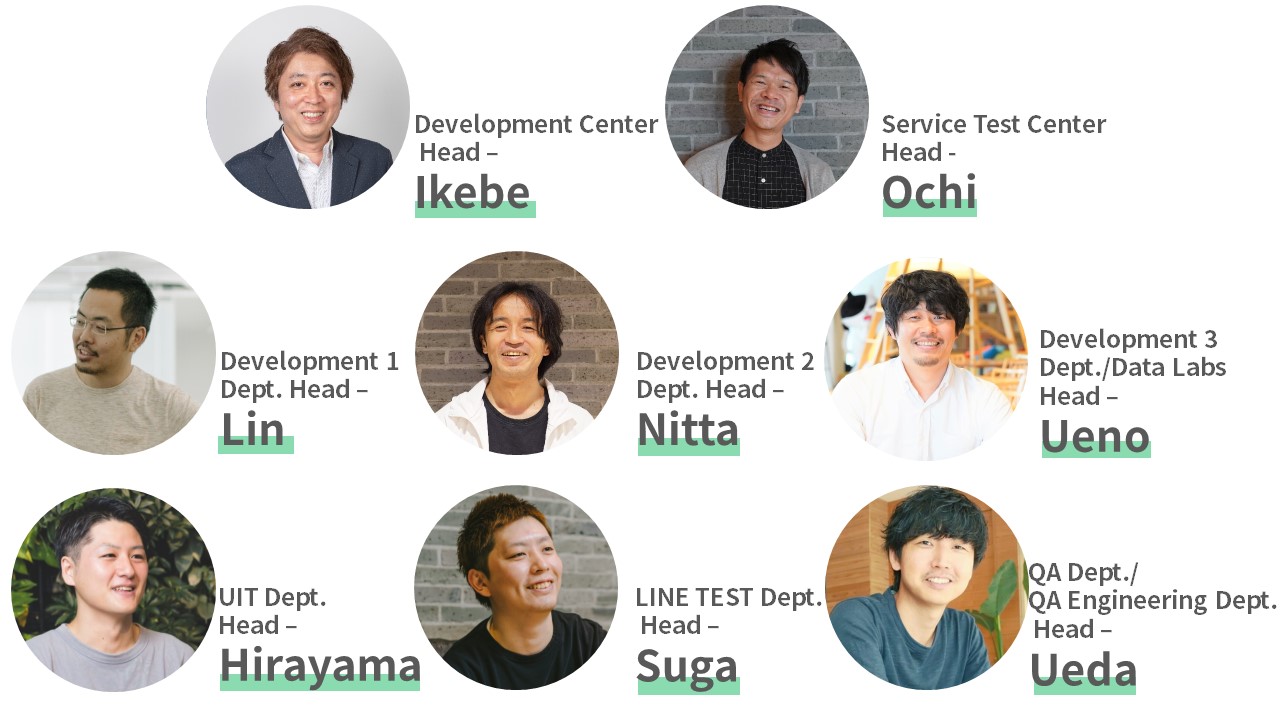
Contents
Department Expansion, Talent Diversification, and an Increase in Employees from Overseas
― LINE Fukuoka's Development Department started in 2014 with just eight employees. Currently, it has expanded to around 100. What was initially a single Development Department has since expanded and compartmentalized into 28 divisions. (Five departments, 20 teams, two parts, and one task force)
Ueno: We're now in charge of more services, so we currently divide teams by service and position. The Data Labs Department (which develops engines and models for data analysis and machine learning) and the UIT Department (in charge of front-end engineering) were also originally one team, but have expanded to become their own departments.
We operate on a smaller scale than the LINE Corporation in Tokyo, but we’re equipped to serve most of the same functions.
Lin: We've done a lot of trial and error in the five years since I joined the company, and by splitting up departments like we have now, I think it's easier for each department to commit to their service and mission. Managers and team members deal with the same service, so it's easier for us to watch over our members from a management perspective.

The current general structure of the Development departments. They're compartmentalized based on their role and the service they're in charge of. Learn more about each team's role here.
― The LINE Group has development departments in Tokyo and Kyoto, as well as Fukuoka. Are there any characteristics unique to the Fukuoka office?
Hirayama: Our characteristic of being located "in Fukuoka" might not be a detriment or an attribute. We build teams that cross office boundaries, and the standards expected of your work are the same no matter where you are.
Ueno: That's true. If I were to suggest a unique characteristic based off of that, it might be that we have a lot of members who joined the company from overseas.
We needed a lot of skilled engineers to handle the sudden growth that LINE services experienced, so we doubled down on hiring from overseas based on the idea that we want to hire elite talent, no matter what country they're from.
Lin: We started to step up our hiring efforts in around 2015. As a result, the number of team members from abroad started to increase in 2016, and they currently make up the majority of some of our teams.
More and more new people joining the company, both domestically and from overseas, is important for a development department. I think that engineers with different strengths, technical knowledge, and backgrounds joining the company has enabled us to learn and grow as a department.
Hirayama: In some cases, it's also difficult to tell people about our multicultural environment. Some engineers in Japan hesitate to join the company because they think that English is a must. It's difficult if they have a strong negative reaction to that, but I'd like to tell people English language ability isn't a requirement in our selection process.
Nitta: There are projects that primarily function in Japanese, and you can choose those projects if you want. On the other hand, it's also true that there is a wider range of work available to you if you can communicate in both English and Japanese. We've prepared an environment that will support people who want to challenge themselves to do that.
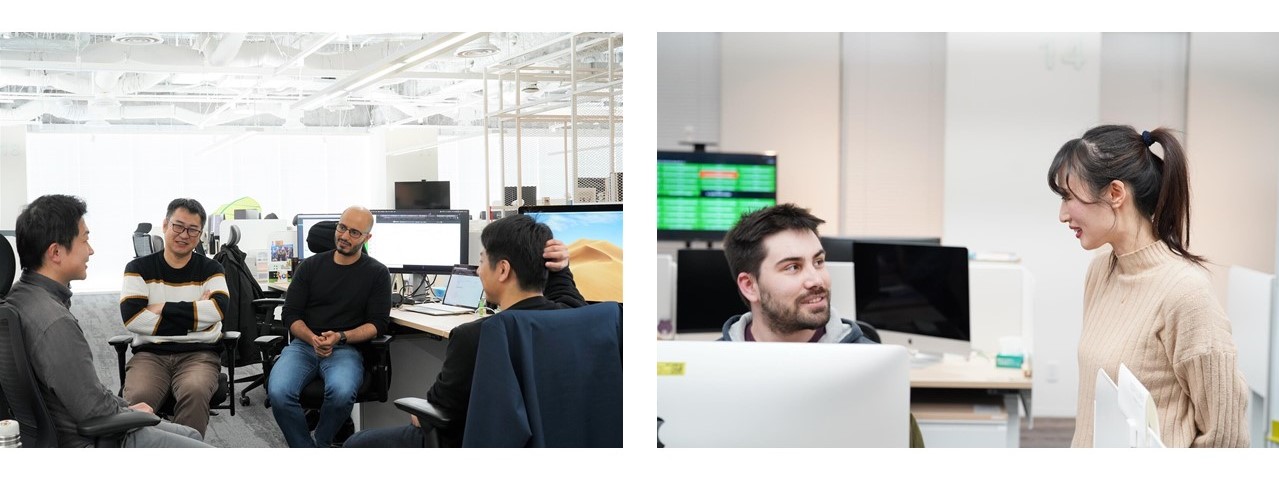
Changes in Expectation of the Fukuoka Office, and the Creation of Individual Projects
― As the content of your work has changed, are there any accomplishments that have particularly left an impression on you?
Ueno: Being tasked with content distribution platforms like LINE STORE and LINE Creators Market, sticker projects for core company business like the LINE Creators Studio, and the development of the LINE messaging app has been a big change for us.
Nitta: By taking on core work in our services, LINE Fukuoka's credibility grows as a company. We can accelerate the adoption process and take charge of new strategic business like LINE Securities.
― We've also heard that Fukuoka is currently working on an independent project.
Ueno: That's the LINE Fukuoka service operation department data visualization project that the Value Management Center, IT Support Department, and Data Labs Department are centrally involved in.
While LINE Fukuoka adopted "Always Data Driven" as its theme for 2020, we hadn't fully visualized what kind of data existed, and weren't visualizing which data we should focus on or fully utilizing it. We're currently reorganizing all of this and preparing LINE Fukuoka's data infrastructure.
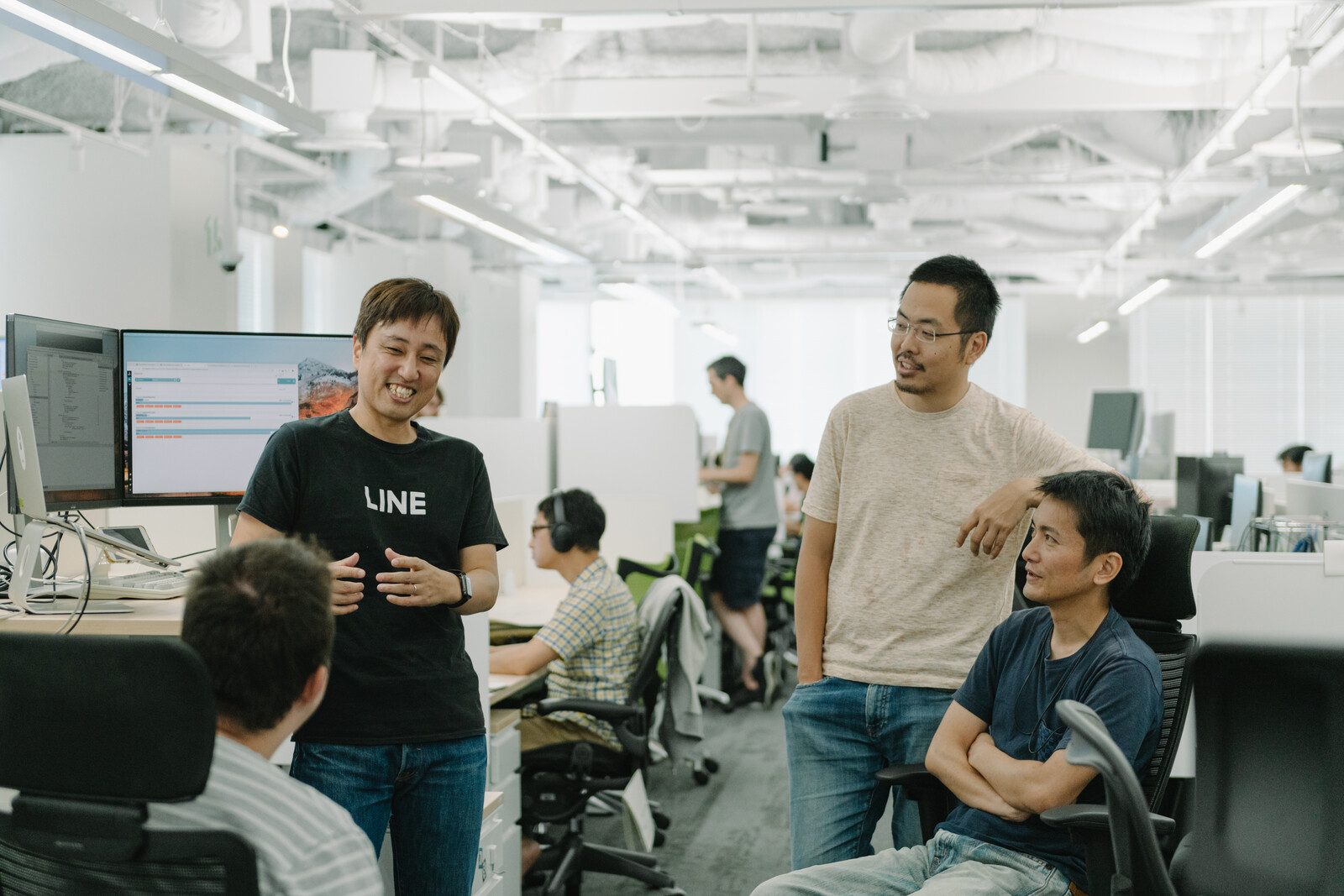
Intentionally Creating "Time Dedicated to Studying"
― We get the impression that you proactively work to promote communication within your teams and study technology, through events like the LINE Fukuoka Development Department Hackathon which began in 2016.
Nitta: Hackathons are about communication within the team, and at the same time they're an opportunity for engineers to "vent."
As engineers, "what we should do at work" doesn't always line up with "what we want to try." We hold hackathons as a venue for engineers to work on things that they normally can't in service development.
Ueno: Recently, some members have chosen improving the projects they're involved in as their theme as well.
Lin: There's always prioritization when you're involved in various projects. I get the impression that people are using hackathons as time to work on projects that they had no choice but to postpone.
As engineers, we have to maintain a balance day to day between our own research and working on projects. Daily study can definitely be used in future projects, so I recommend that we set aside study time as a department as well, but some members may struggle with allocating their time or get absorbed in the work that's in front of them.
Intentionally holding events like hackathons lets those members spend time freely, and also provides us with opportunities for technological inspiration and communication through collaboration with people on different teams.
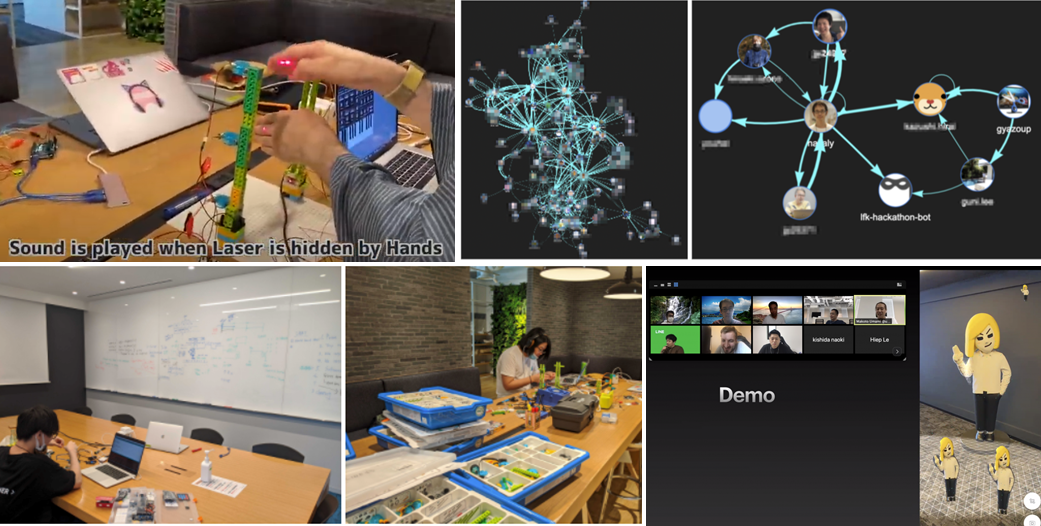
A LINE Fukuoka hackathon. The event was held remotely for the first time in 2020.
― Before the pandemic, the external exchange events you held in the café were also thriving. Please tell us about the changes to Fukuoka's engineering community.
Nitta: I came to Fukuoka in 2012, but I get the feeling that the community is more compartmentalized compared to then. Various communities that specialize in technology are increasing.
However, events have moved to being held online due to the pandemic, and opportunities for exchange locally are on the decline. Moving events online has the advantage of being able to participate in any region's events.
On the other hand, I also feel that we're exploring ways to preserve the value of the appeal and individuality of the "Fukuoka engineering community."
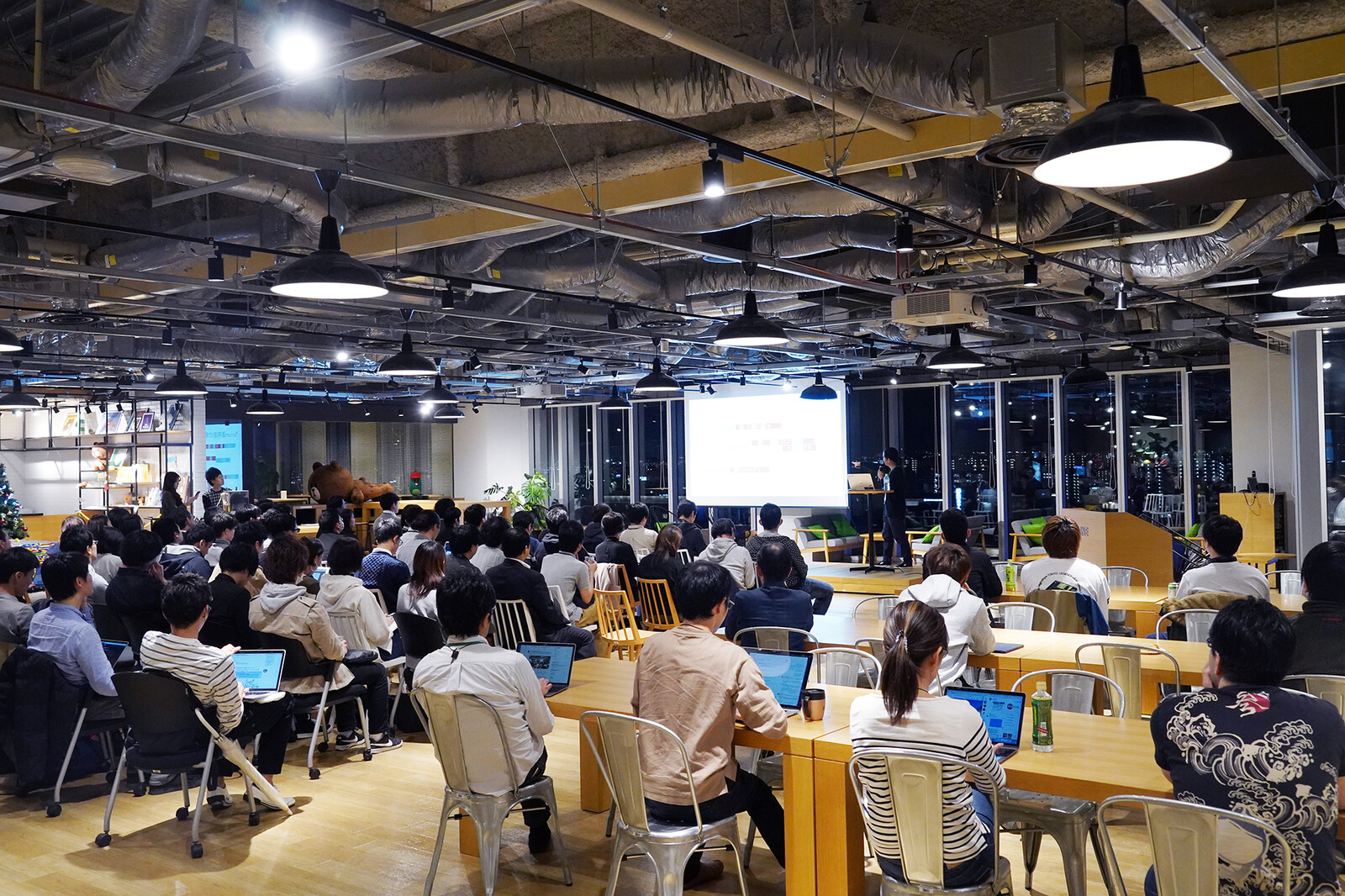
LINE Developer Meetup #58, held in 2019.
Striving for a Positive Cycle of "Interesting Projects" and "Diverse New Talent"
― How will LINE Fukuoka's Development Department evolve going forward?
Ueno: I want to work on LINE's cutting edge projects like core business and strategic business.
Lin: I want to continue to expand the scale of our department. If we have more people, then we can be in charge of more projects.
Hirayama: The number of interesting projects will increase if our department grows, and if there are more interesting projects, then we can hire more people. That's a cycle I want to start.
Nitta: An increase in work we've never done before would be nice.
LINE itself is evolving more and more. We've transformed from a messaging app into a platform, and now we're heading towards becoming a super app. The types of services that we can offer are expanding.
In order to take on new challenges, we need to study new things. If we're going to handle financial services, then we need a certain amount of fundamental knowledge on banking laws and the securities marketplace. Similarly, we'll need to familiarize ourselves with issues in government services if we go into GovTech.
If we offer a broader range of services like that, then we'll never be bored.
Ueno: If the scope of our services expands, that will lead to more people with different backgrounds joining the company.
Lin: Getting talented people to join our company is important, and I want our current members to be able to challenge themselves with more and more interesting projects, too. I want to be able to offer them options.
Ueno: I’d like people to see LINE Fukuoka as a good option to work for, whether it's someone who wants to relocate to Fukuoka, or someone who already lives here.
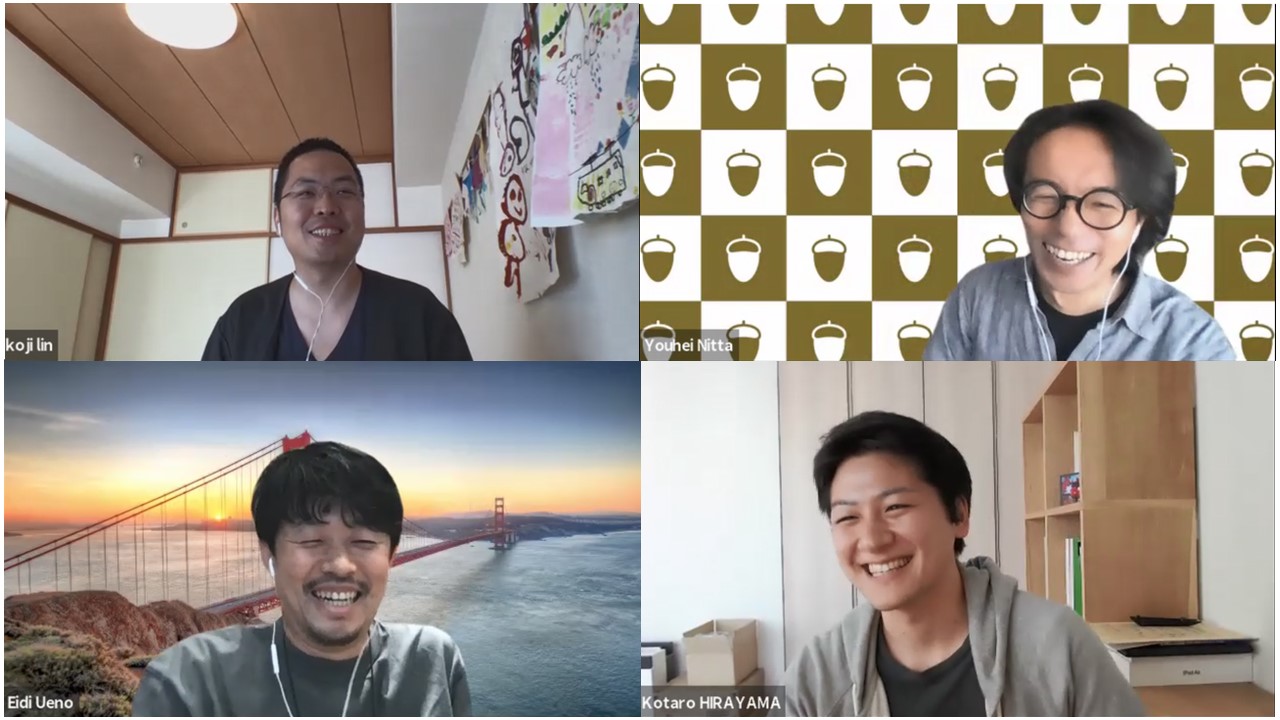
From an Eight Person Test Department → The LINE Group's Largest QA/Test Site with 371 Members
― Currently, the QA and Test Departments have 371 members, and they are the largest-scale QA and testing division within the LINE Group. Initially, they were a team of just eight people.
Suga: As LINE's services rapidly expanded, we had nowhere near enough employees when our department was established. We couldn't catch up by just hiring experienced candidates, so we aggressively hired people with no experience as well. By the way, I had no experience when I joined the company, either.
When our department was created, we were hiring ten people every month. Around this time, we put a lot of effort into education and training, so those employees who were hired with no experience are now supporting our department from the front lines.
― As services were released one after another, we've heard that your duties gradually changed.
Suga: Initially, we were just a department that was responsible for some service testing. From there, we gradually took on general QA work for small-scale services, and then large-scale services, and so on.
Initially, our duties were also split up so that Fukuoka carried out test plans that were created by service QA managers at other offices. However, the number of services that we were in charge of overall QA for increased, and we began to handle general tasks outside of execution, from creating test planning to design.
Our business expanding to the point that it couldn't all be handled by Tokyo was a part of that, but the work as a whole was entrusted to Fukuoka. I think you can say we've grown as a department.
Ueda: The field of services we were in charge of expanded, too. Originally we focused on web services and apps, but then Fintech services and hardware like LINE Clova began to increase. These have completely different testing standpoints as well as approaches and priority orders for bugs.
― How did you respond to an expansion in fields like that?
Ueda: They're fields we hadn't accumulated experience in, so all we could do was study. We interviewed developers about the creation of their service and the background of their projects, and in the Fintech field, we held study groups based on certification exam textbooks to acquire fundamental knowledge of investing, insurance, and securities.
Especially for Clova, which was LINE's first piece of hardware, we worked closely in tandem with business departments to determine quality standards. I think we established a trustworthy relationship with business departments by repeating this process.
― From around this time, you also focused on improving efficiency in work through things like test automation.
Suga: New business and services as well as highly challenging work continue to increase, and there are also services that require simple, standard testing from a maintenance standpoint. There's a limit to the force of numbers, and we faced the issue of assigning team members who had spent time cultivating skills to work that they couldn't apply their skills to.
At the time, automation was trending in the testing industry, so we challenged ourselves to automate and streamline our work as much as possible. An increase in members with the programming skills to work on automation played a big part in that.
Through work like this, we're now able to assign the more complex work to our team members.
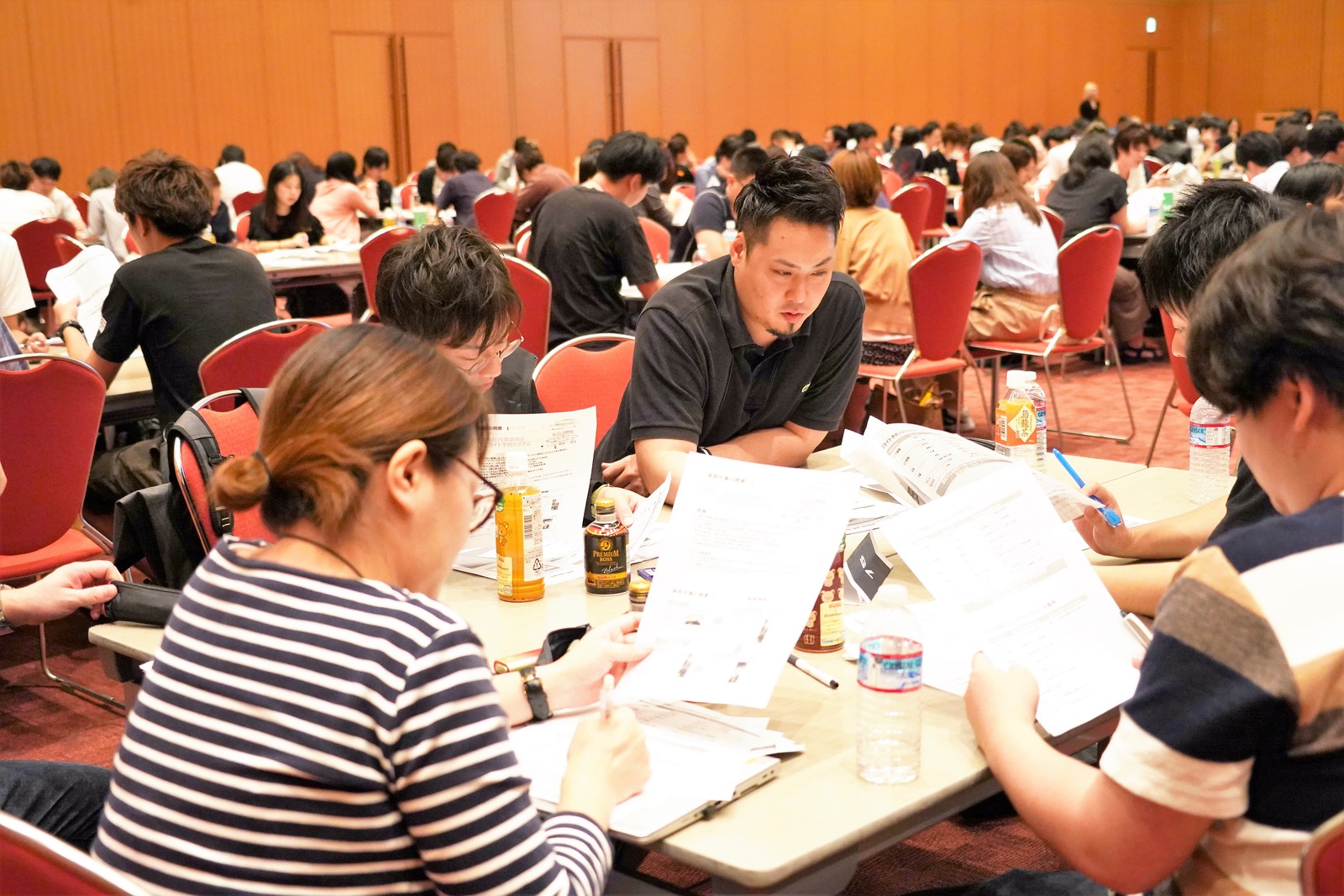
A workshop held in 2019. The tech departments are also proactive about team-building.
Creating a New Form of QA from Fukuoka
― You've been performing large-scale restructuring in your department this year, haven't you?
Suga: Up to now, we've focused on continuing to evolve primarily in the testing field.
However, I believe that rather than just focusing on providing QA for our services, our activity should look at the actual service creation processes themselves and strive to improve their quality.
We're trying to separate our departments by role and create an environment that allows each department to focus on its own mission so that we can really focus on other fields outside of testing as well.
Currently, each project defines its roles differently, and the QA and testing processes are also different. We're trying to make sure that all of the LINE Group's QA Departments (and not just Fukuoka) are on the same page about things that we've partially optimized and pursued up to now.
The Group as a whole plans to redefine its priorities and take steps to create the foundation of an ideal QA system.
― How will LINE Fukuoka's QA and TEST Departments evolve going forward?
Ueda: Until now, we were perceived as an organization that produced results as ordered, and one that was desperately trying to keep up with our expansion.
In the future, I want to produce results that exceed those expectations instead of just meeting them. To accomplish that, I think we need to consider our definition of and standards for quality in QA activities and put them into practice, not just work in quality control (QC).
We’ll clearly divide the roles of QA and testing, and utilize our expertise in each of those fields, to change the state of quality. We’re seriously considering how we can change the quality of LINE itself, rather than LINE Fukuoka.
Suga: Until now, we've prioritized finding bugs and quickly releasing a stable service. Now we're once again starting from scratch by considering what quality is and what the best conditions are for our users, and looking back to try and find the true nature of our department and how we should go about our work.
In order for everyone to do good work while keeping the ideas of service creators as well as the members who will actually take on the work in mind, we should be asking what kind of processes we need and what our department needs to look like. I want to enable both individuals and our department to evolve together so we can do more essential work.
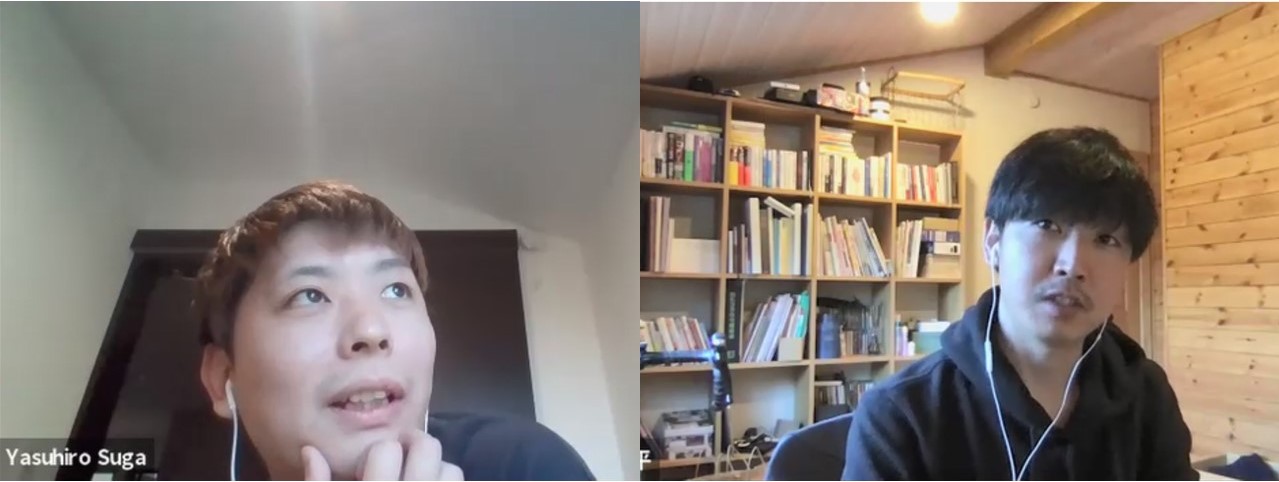
Leading the LINE Group from Fukuoka, in a World Increasingly Unrestrained by Workplaces
― This last question is for the current Development Center Head, Mr. Ikebe, and the Service Test Center Head, Mr. Ochi. How do you want to drive evolution in LINE Fukuoka's Development, QA, and TEST Departments going forward?
Ikebe: LINE Fukuoka's Development Department has grown into one that forms the core of the LINE Group.
New working styles have become prevalent, especially this year due to the COVID-19 pandemic. LINE Fukuoka has continued to produce results regardless of location or our member's nationalities up to this point, so I think we'll become a model for development systems in the LINE Group.
As workplaces become less and less of a problem in the world, I expect the department to be able to participate more flexibly in the development of a variety of projects.
Ochi: The QA and TEST Departments inevitably deal with an overwhelming amount of products and projects. That's exactly why our mission is to have an impact on the quality of business for the LINE Group as a whole.
We need to move away from reactive response, and be able to take steps towards proactive measures. We're aiming to create a new breed of QA at LINE so that we can deliver the best services possible to our users. In order to do that, we're taking another look at our existence as a department.
Up to now, we've been able to support the quality of LINE services thanks to the effort of each and every one of our members. On the other hand, as our company grows, the market (including our users) expects more from us whether we like it or not. If we just leave everything up to our on-site capabilities, there's no way we'll be able to handle everything. I think creating an environment that lets us further demonstrate our on-site capabilities is what's best for the department, its members, and our users as well.
Our targets for quality should shift from tangible things to the intangible and the user experience itself; the source of quality should be our department and structure, not individuals; and our involvement in QA should be active not passive. I want LINE Fukuoka to evolve into a company that creates WOWs directly linked to the quality of LINE services.
A message from the editor/LINE Fukuoka Press"Constantly continuing to study as the scope of services created by LINE expands." During the seventh anniversary project, this is something we've heard from a lot of our leaders, not just the Development, QA, and TEST Departments.While that's not to say that LINE Fukuoka does a lot of training compared to other companies, each team is spontaneously creating its own learning opportunities. We think that may have taken root in our company culture precisely because we have many "functionally-driven departments" which have members involved in various services; the Development, QA, and Test Departments could have been the origin of that.
Thank you very much Mr. Ikebe, Mr. Ochi, Mr. Lin, Mr. Nitta, Mr. Ueno, Mr. Hirayama, Mr. Suga, and Mr. Ueda!
The theme for our next article in the seventh anniversary project is the past and future of "building a strong organization." We will sit down with LINE Fukuoka's behind-the-scenes power players: members of our corporate departments. We hope you'll read the next article as well!
▼ 7th Anniversary Project - Discussing the Past Seven Years and the Future of LINE Fukuoka [Seven posts in total]
7. [Top Talks] Why We're "LINE Fukuoka"
You can also follow us on social media to get regular updates about career opportunities and the initiatives LINE Fukuoka is undertaking!
You can also follow us on social media to get regular updates about career opportunities and the initiatives LINE Fukuoka is undertaking!
Related Articles
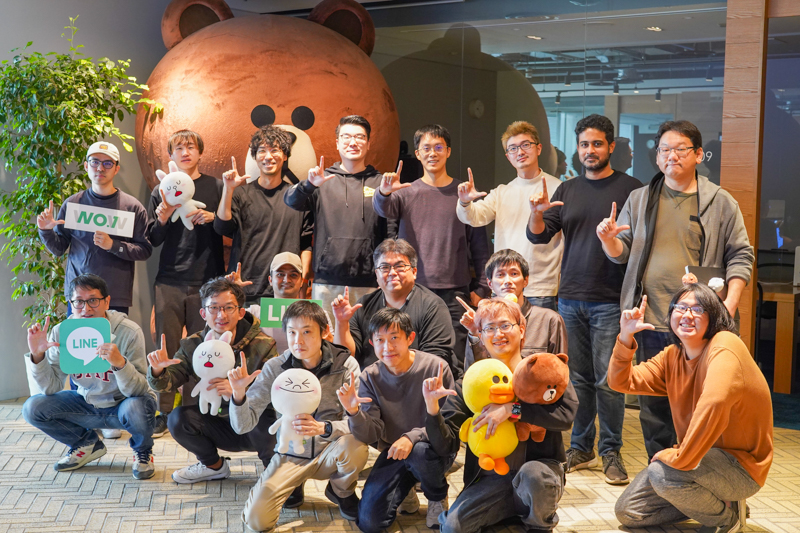
[Event Report] Offline "Office Days" for a Fully Remote and Diverse Development Team
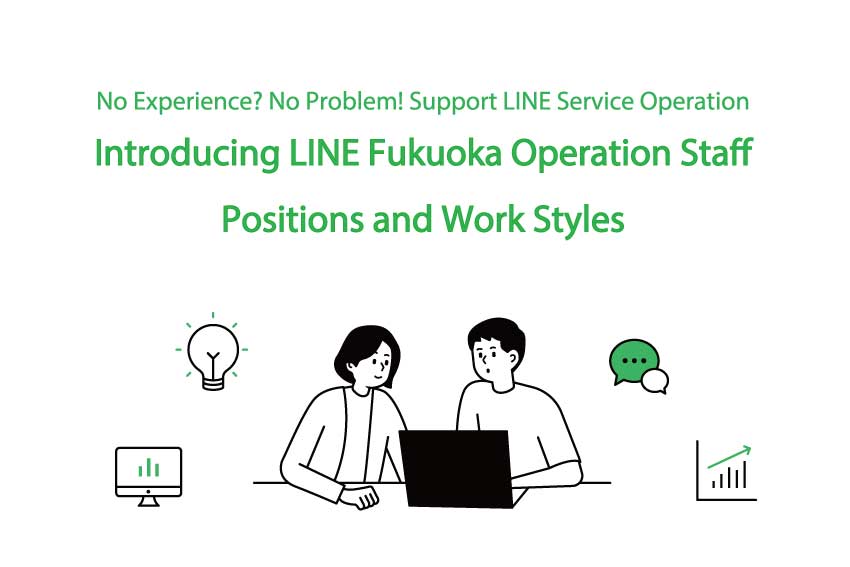
No Experience? No Problem! Introducing LINE Fukuoka Operation Staff Positions and Work Styles
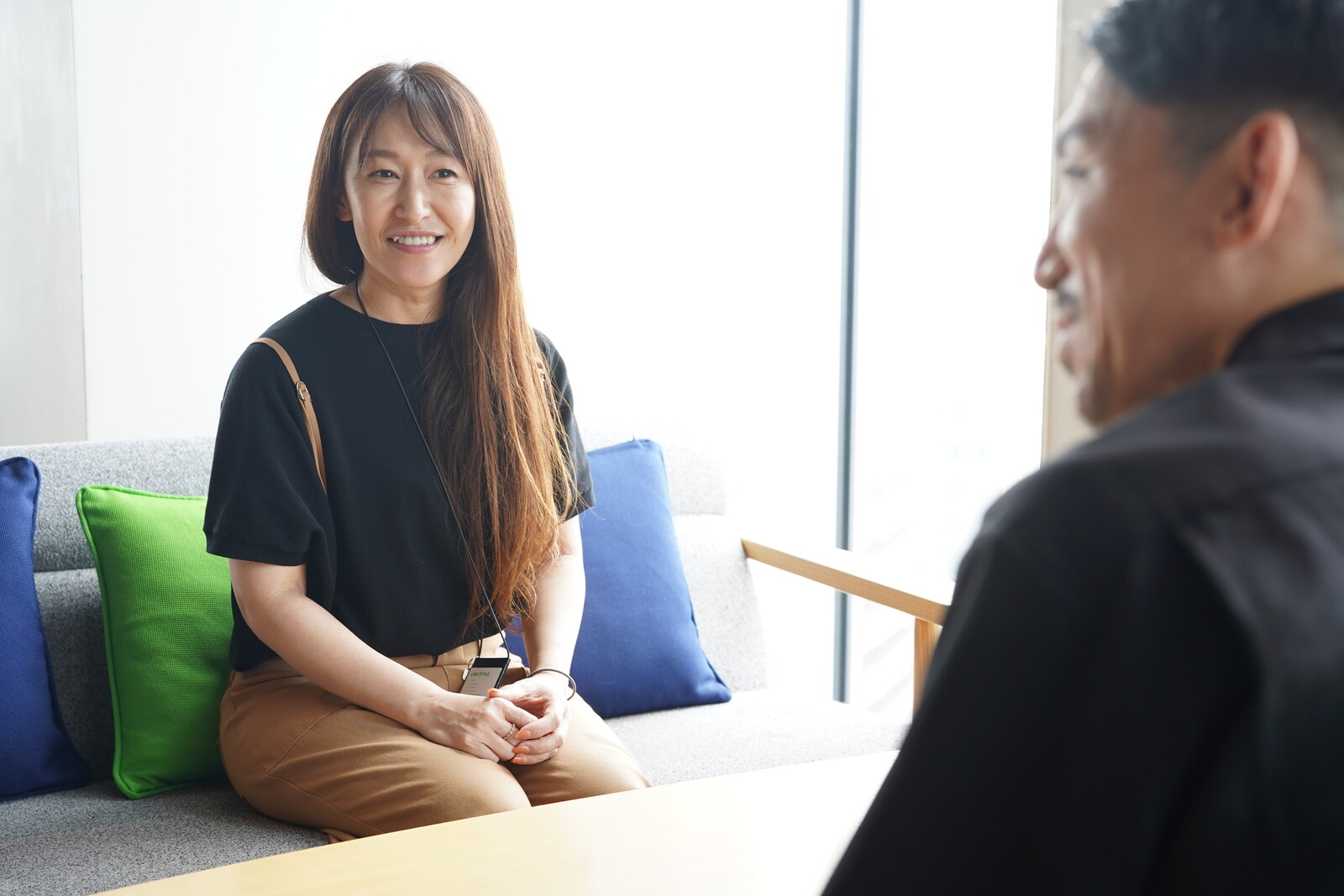
Introducing the Departments that Support the Growth of LINE Search!
